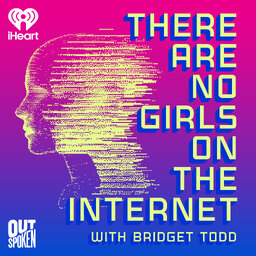DISINFORMED is over for now, but the conversation continues
On our final episode of this season, Bridget sits down with producer Mike to look back at where we've been and where we're going next.
If you'd like to get in touch with Bridget and the team for speaking or events (or anything else!) shoot us an email Hello@Tangoti.com
Learn more about your ad-choices at https://www.iheartpodcastnetwork.com
In 1 playlist(s)
There Are No Girls on the Internet
Marginalized voices have always been at the forefront of the internet, yet our stories often go over…Social links
Follow podcast
Recent clips

BAFTAs racial slur; Nicki Minaj bot network; TikTok “Psychic” faces Defamation trial for University of Idaho murders – NEWS ROUNDUP!
1:16:39

A TANGOTI Announcement We've Been Sitting On
47:34

Chris Pratt Is Hawking an Anti-Abortion Prayer App; Elon's Grok Is Doxxing Women; DOGE Bros Let ChatGPT Do Their Job; Trump’s Big DEI Loss – NEWS ROUNDUP
1:07:04
 There Are No Girls on the Internet
There Are No Girls on the Internet